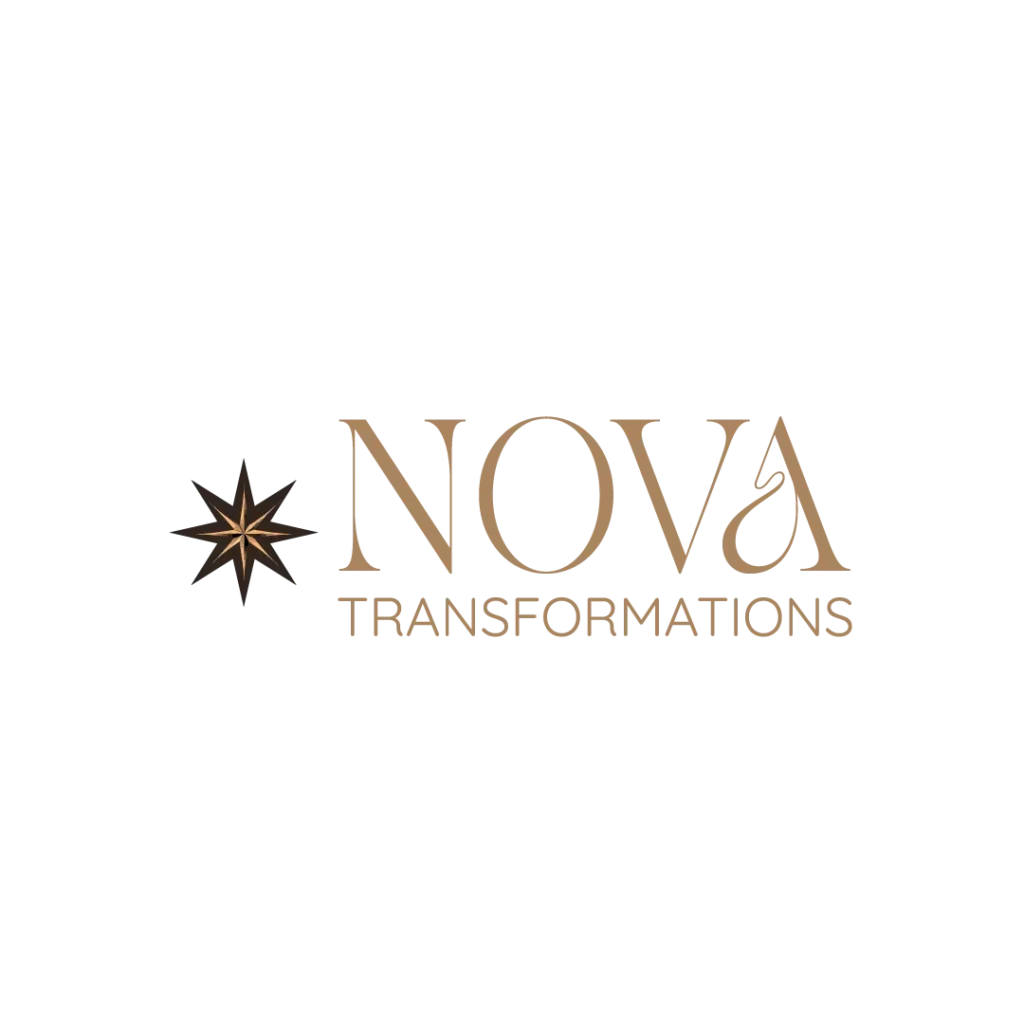Understanding Addiction
Addiction is a complex condition that affects many aspects of your life, including health, relationships, and overall well-being. It is vital to understand its impact and the available treatment options to get on the path to recovery.
Impact of Addiction on Health
Addiction has far-reaching consequences on both physical and mental health. It can lead to numerous health issues, including heart disease, liver damage, and mental health disorders. According to the Cleveland Clinic, alcohol use disorder is the most common substance addiction in the United States, affecting about 10% of people aged 12 or older. Additionally, opioid addiction has reached alarming levels, leading to a significant increase in overdose deaths, with nearly 108,000 people dying from drug-involved overdoses in 2022 alone.
| Health Impact | Description |
|---|---|
| Physical Health | Increases risk of chronic diseases such as heart disease, liver disease, and respiratory problems. |
| Mental Health | Contributes to anxiety, depression, and other mental health disorders. |
| Relationships | Can strain or destroy personal relationships and increase isolation. |
Diagnosis and Treatment Options
Recognizing addiction is the first step toward recovery. Diagnosis typically involves assessing your substance use history and current behavior. Treatment will address a variety of underlying issues, including genetics, trauma, and maladaptive coping skills.
At Nova Transformations, we utilize evidence-based approaches and various therapies to provide holistic care. Treatment options include:
- Medication-Assisted Treatment: Used for addictions to alcohol, opioids, and other substances, it may involve medications, such as buprenorphine or naltrexone, to reduce cravings and withdrawal symptoms.
- Therapies: Individual and group therapies, such as Trauma Therapy and Cognitive Processing Therapy, help address the psychological components of addiction. This dual focus on substance use and co-occurring disorders offers comprehensive care (dual diagnosis treatment).
- Inpatient and Outpatient Programs: Depending on your needs, you can opt for inpatient rehab or outpatient rehab programs. Each has a structured approach to help you navigate your recovery journey.
The combination of tailored treatment and ongoing support significantly increases the chances of recovery. With the right help, you can overcome addiction and regain control over your life. For more information about our specific treatment options, explore our services in alcohol rehab, opioid rehab, or fentanyl rehab.
Choosing the Right Treatment Center
When selecting a treatment center for addiction, understanding the initial steps in the recovery process is critical. Two key components of effective addiction treatment are medical detox and residential inpatient treatment.
Importance of Medical Detox
Medical detox is an essential first step in your recovery journey. It is specifically designed to help you safely and comfortably wean off alcohol and drugs. Attempting to stop “cold turkey” without medical supervision can lead to severe withdrawal symptoms that may even be life-threatening.
During medical detox, professionals will monitor your health closely and provide necessary interventions to manage withdrawal symptoms, ensuring your safety. This process can include the following:
| Withdrawal Symptoms | Possible Treatments |
|---|---|
| Anxiety | Anti-anxiety medications |
| Nausea | Anti-nausea medications |
| Tremors | Sedatives |
| Seizures | Monitoring and emergency support |
Opting for a medically supervised detox at a reputable center, such as Nova Transformations, sets a solid foundation for the subsequent stages of your recovery process.
Benefits of Residential Inpatient Treatment
Following medical detox, residential inpatient treatment offers numerous advantages. This form of treatment immerses you in a supportive community of peers who are also working towards sobriety. The communal aspect of inpatient rehab can significantly enhance your recovery (Cornerstone of Recovery).
Inpatient rehab typically involves a structured daily schedule that may include:
| Daily Activities | Description |
|---|---|
| Morning Yoga or Meditation | Promotes relaxation and mindfulness |
| Group Therapy Sessions | Provides support and shared experiences |
| Specialized Treatments | Addresses specific needs, such as trauma-informed care |
| 12-Step Meetings | Facilitates community and accountability |
| Personal Time | Allows for reflection and self-care |
The structured environment of residential treatment helps keep you focused on your recovery goals, particularly when led by skilled medical professionals who utilize evidence-based therapies and continuous evaluations for personalized care.
By choosing a facility like Nova Transformations, you ensure access to quality care that integrates medical detox and comprehensive residential services, setting you or a loved one on the path to recovery.
Comprehensive Treatment Approaches
Finding effective addiction treatment requires addressing the root causes of substance use and implementing a comprehensive approach. At Nova Transformations, we focus on two major strategies: addressing underlying issues and adopting a whole person approach.
Addressing Underlying Issues
Substance use is rarely just about the addiction itself. It often involves a complex mix of genetic, environmental, and psychological factors. Nova Transformations believes in treating the whole person by exploring these underlying issues.
Common factors influencing addiction include:
- Genetics
- Trauma and abuse
- Family history
- Maladaptive coping skills
Our therapies, such as Trauma Therapy and Cognitive Processing Therapy, are designed to unearth and address these underlying issues (Cornerstone of Recovery). This individualized attention helps in crafting personalized treatment plans tailored to unique needs rather than only focusing on the substance abuse itself.
To illustrate the prevalence of those needing help, in 2023, over 48 million people sought substance use treatment according to the Substance Abuse and Mental Health Services Administration. It’s vital to recognize the multifaceted nature of addiction and address it holistically to ensure effective recovery.
Whole Person Approach
The whole person approach emphasizes that effective treatment encompasses all aspects of a person’s life. At Nova Transformations, we address not only addiction but also co-occurring mental health disorders, familial relationships, and physical health needs.
By focusing on various factors, we create a robust treatment plan that considers:
| Aspect | Focus |
|---|---|
| Mental Health | Co-occurring mental disorders and trauma |
| Physical Health | Nutrition and overall well-being |
| Family Dynamics | Involving family in the recovery process |
| Aftercare Planning | Ensuring continuous support beyond rehab |
This comprehensive care style ensures more sustainable recovery by equipping you with coping mechanisms, enhancing relationships, and improving mental and physical health.
Choosing the right addiction treatment center can make all the difference in recovery. With personalized attention and a commitment to comprehensive care, Nova Transformations offers the support needed for lasting change. For further treatment options, explore our specific rehab services, including alcohol rehab, heroin rehab, and dual diagnosis treatment.
Success Rates and Statistics
Importance of Aftercare Programs
Aftercare programs are essential in supporting individuals after they complete an addiction treatment. These structured support systems offer continued care and play a crucial role in achieving lasting recovery. They encompass relapse prevention strategies, skill development for stress management and communication, and ongoing monitoring of mental health to promptly address any signs of relapse or new issues.
The significance of relapse prevention in aftercare cannot be overstated. It provides individuals with tools and strategies to recognize early signs of relapse and cope with cravings. Techniques such as Cognitive-Behavioral Therapy (CBT) and Dialectical Behavior Therapy (DBT) are employed in these programs to help manage negative thought patterns and emotional regulation (Greater Boston Behavioral Health).
Another vital aspect of aftercare programs is their access to support groups, including 12-step programs and non-12-step alternatives like SMART Recovery. These groups foster peer support, encourage accountability, and help reduce feelings of isolation, which can trigger relapse.
Factors Influencing Recovery
Several factors can significantly influence your recovery journey. The effectiveness of an addiction treatment program depends on various elements, establishing a comprehensive framework for successful outcomes.
| Factor | Description |
|---|---|
| Support Systems | Strong support from family and peers can greatly enhance recovery efforts. Involving family therapy in aftercare may repair relationships and improve communication. (Greater Boston Behavioral Health) |
| Individual Motivation | Your desire to recover plays a critical role. Commitment to personal goals and openness to change are beneficial for long-term success. |
| Type of Treatment | The method of treatment, whether inpatient or outpatient, can affect recovery. Tailoring treatment to your specific needs enhances success rates. |
| Mental Health Status | Co-occurring mental health disorders can complicate recovery. Integrated treatment for both substance use and mental health issues is essential. |
| Engagement in Aftercare | Active participation in aftercare programs has been linked to lower relapse rates. Regular check-ins, support groups, and ongoing therapy keep you connected and vigilant in your recovery journey. |
Understanding and addressing these factors can significantly enhance the chances of successful recovery. Nova Transformations emphasizes a multifaceted approach to treatment, providing comprehensive care tailored to each individual’s unique needs.
Types of Aftercare Programs
Aftercare programs are essential components of successful addiction treatment. They provide ongoing support and resources to help you maintain recovery and prevent relapse. Below, we explore two critical components of aftercare: relapse prevention strategies and family involvement and support.
Relapse Prevention Strategies
Relapse prevention is a crucial element of aftercare programs. These programs equip you with tools and strategies to recognize early signs of relapse and cope with cravings. Techniques such as Cognitive-Behavioral Therapy (CBT) and Dialectical Behavior Therapy (DBT) are commonly used. They aid in managing negative thought patterns, emotional regulation, and decision-making, helping you maintain emotional stability (Greater Boston Behavioral Health).
Many aftercare programs also include access to support groups. These may consist of traditional 12-step programs or non-12-step alternatives like SMART Recovery. Involvement in these groups fosters peer support, encouragement, and accountability, which can reduce feelings of isolation—often significant triggers for relapse (Greater Boston Behavioral Health).
To give you an idea of how effective relapse prevention strategies can be, consider the following statistics:
| Strategy | Effectiveness |
|---|---|
| Access to Support Groups | Reduces isolation, improves accountability |
| CBT and DBT | Enhances emotional regulation, decreases relapse risk |
Family Involvement and Support
Incorporating family involvement in aftercare programs significantly enhances the effectiveness of treatment. Family support provides a strong foundation during recovery, reminding you that you are not alone in this journey. Open communication about recovery goals and challenges helps build family dynamics that encourage sustained sobriety.
Family therapy can be a critical aspect of the aftercare process, as it allows family members to understand addiction better, develop coping skills, and learn how to provide appropriate support. Your family plays a key role in your recovery journey, and including them in treatment can help address co-occurring issues that may affect both you and your loved ones.
It’s essential to maintain consistent engagement with your family as you navigate recovery. Remember to discuss changes in your aftercare plan openly and involve them in local support networks, ensuring they feel empowered to assist you. For resources tailored to the family aspect of recovery, explore our links to family therapy addiction treatment and substance use treatment.
By using a combination of effective relapse prevention strategies and involving family in the recovery process, you can greatly enhance your chances of maintaining lasting sobriety and improving your overall quality of life.
Treatment Options and Processes
Understanding the various treatment options available is essential for anyone considering addiction treatment. At Nova Transformations, you will find a range of approaches designed to suit individual needs, including inpatient and outpatient rehabilitation.
Inpatient vs Outpatient Rehab
Inpatient and outpatient rehab programs offer distinct environments catering to different stages of recovery.
| Aspect | Inpatient Rehab | Outpatient Rehab |
|---|---|---|
| Treatment Environment | Residential, 24/7 medical support | Non-residential, scheduled sessions |
| Structure | Daily structure with multiple therapies | Flexible schedule |
| Duration | Typically 30 days or more | Varies, often weeks or months |
| Support | Constant peer and professional support | Support from peers, less frequent access |
| Best For | Severe addiction, need for detox | Mild to moderate addiction |
Inpatient rehab often begins with medical detox, a crucial first step that safely weans individuals off substances. Trying to detox without medical supervision can lead to severe withdrawal symptoms, making professional assistance necessary (Cornerstone of Recovery). This setting integrates patients into a peer-supported community where they can work towards sobriety together.
Outpatient rehab provides more flexibility and the option for you to live at home while attending therapy sessions. This model is best for those with less severe addictions who have strong support systems in place.
Individualized Care and Therapies
One of the core philosophies at Nova Transformations is offering a “whole person” approach to treatment. This means treating not only the addiction but also addressing any co-occurring mental health disorders, familial relationships, and aftercare planning. Treatment plans are customized to meet individual needs and preferences.
Common Therapies Provided:
| Therapy Type | Description |
|---|---|
| Individual Therapy | Personalized counseling focusing on your journey |
| Group Therapy | Peer-led support groups that foster community |
| Family Therapy | Involving loved ones to heal relationships |
| Experiential Therapy | Art, music, and psychodrama therapies to express feelings |
| Holistic Approaches | Yoga, nutrition counseling, and breathwork |
At Nova Transformations, you will benefit from a comprehensive treatment plan that may involve various forms of therapy tailored to your specific recovery path. You will discover that effective treatment goes beyond substance use and looks at your overall well-being, ensuring a more sustainable recovery journey. For more information on our programs, explore our options like alcohol rehab, heroin rehab, and more specialized treatments.








